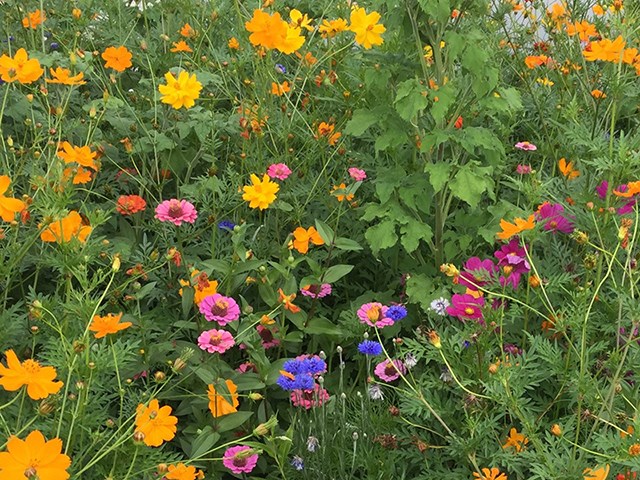It’s summer and everyone is busy with garden chores – weeding, watering, harvesting. When it’s time to finally reap the fruits of your labour, it’s also time to start thinking about next year’s planting.
The time to save seeds for the next year is this year! So, depending on when your flowers bloom and vegetables ripen, it may already be time to start saving seeds for 2022.
Many seeds are easy to save – just be sure to start with open-pollinated varieties of plants, these are plants that will retain their characteristics when bred with another of the same plant. All of the seeds distributed by the BWG Seed Library are open-pollinated.
Some of the easiest vegetables to start saving seeds from are beans, peas, lettuce and tomatoes. These plants are self-pollinating and do not require a lot of space or isolation. For information and tips on how to save seeds from vegetables, check out Seeds of Diversity, the Canadian seed saving organization, at www.seeds.ca. This organization is a strong supporter of Seedy Saturdays and provides reliable information for free. You can also check out Seed Savers Exchange, the US seed saving organization, at www.seedsavers.org. Both organizations provide excellent tips and specifics on how to grow and save seeds.
Seeds can also be saved for many flowers – old fashioned, annual varieties are usually the easiest to save and grow and include varieties such as sunflowers, cosmos, zinnias, poppies, calendula and nigella. Usually seeds can be found in dried seed heads. Remember again to only save only open pollinated varieties. Many herb seeds such as fill, fennel, chives and coriander can be saved in a similar fashion.
Seed saving can save money, preserve heritage plant varieties, increase seed diversity and is fun! Consider sharing some of your seeds with your community by donating extra seeds to the BWG Seed Library. The BWG Seed Library is part of the BWG Library – click here for details


